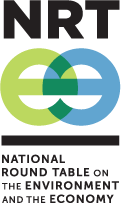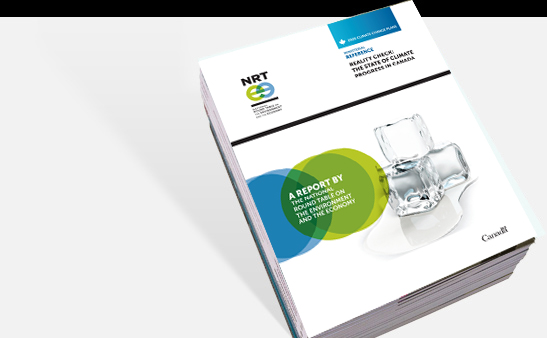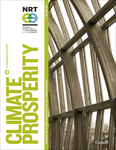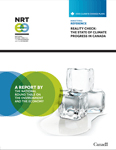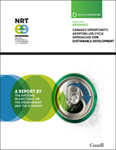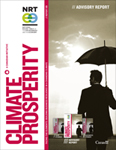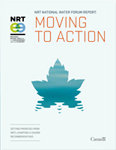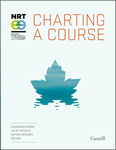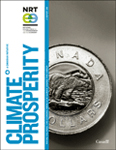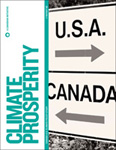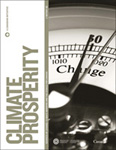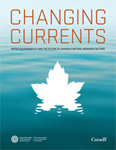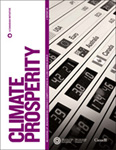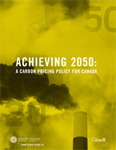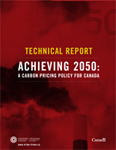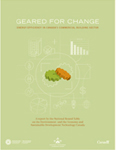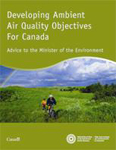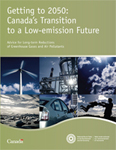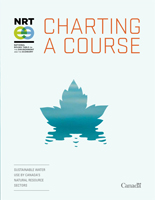Sustainable Water Use by Canada’s Natural Resource Sectors – Advise
EXECUTIVE SUMMARY
Water has both environmental and economic value. It is essential to sustaining ecosystems and growing our economy. Ensuring our natural resources sectors – the biggest water users in Canada – both have enough water to grow, and use that water more efficiently and sustainably, is what the NRT’s new water report is all about. Read the Executive Summary
WATER USE BY THE NATURAL RESOURCES SECTORS
Sorry, either Adobe flash is not installed or you do not have it enabledThe natural resource sectors use and consume more water than any other sectors in the nation, accounting for approximately 86% of Canada’s water use in 2005.
According to economic forecasts, the sectors are expected to experience significant growth, ranging from 23% to 58%, by 2030. Added to other stresses, like climate change and a resultant increase in the frequency of extreme weather events, the NRT has concluded that the long-term sustainability of our water resources may be in question. And more specifically that our governance and management structures may be not be well positioned to deal with an uncertain water future, especially with respect to water quantities in this country. Read more
OUR FINDINGS
Our research shows that we can address some of the water challenges associated with a prosperous resource sector by taking steps to
- better understand the future growth of the natural resource sectors and their water requirements;
- recognize the value of water, both in terms of how much it currently costs the sectors and where water pricing may be an incentive for further water efficiency and conservation;
- ensure that water strategies and policies include a suite of new policy instruments that are readily available for implementation, including water pricing and voluntary initiative options;
- develop comprehensive water data and information systems, taking stock of both water supplies and water demands, particularly in the most vulnerable watersheds in the country; and
- promote further collaborative water governance in appropriate circumstances, such as in the need for water strategy development.
CONCLUSIONS
Water Forecasts
Historical water use by the natural resource sectors shows improved water-use efficiency for most sectors, even in the absence of water policies to motivate such efficiency gains.
Policy Instruments
Economic instruments (EIs) and voluntary initiatives have real potential for contributing to the goals of improving water conservation and water efficiency.
Water-Use Data and Information
A lack of reliable, publicly available data on water quantity has negative implications for current and future water resource management in Canada.
Collaborative Water Governance
Effective collaborative water governance requires the involvement of a broad range of stakeholders.
RECOMMENDATIONS
Principles for Water Governance and Management
The NRT recommends that federal, provincial, and territorial governments developing new water strategies should adopt the following core principles in our report:
- Water has value — in economic, environmental, and social terms — and should be managed in trust without harm to its sustainability or that of the ecosystems in which it occurs.
- Water must be conserved and used efficiently.
- Water governance and management should be adaptive.
- Water governance and management should be collaborative.
THE REPORT
NEWS RELEASES
November 17, 2011 – Canada needs fresh approach to water supply management for natural resource sectors
Read the News Release
Read the Media Backgrounder
COLLABORATIVE WATER GOVERNANCE

The NRT set out to explore the potential of collaborative water governance approaches and how they might assist in achieving sustainable water use by the natural resources sectors. Read more
A PRICE ON WATER USE

The NRT research shows the potential that putting a price on water has on achieving water reduction objectives, with modest impacts to most sectors and the national economy. Read more
WATER-QUANTITY DATA AND INFORMATION

Good policy development and solid management decisions require sound evidence and information. Information is derived from data, and in the context of water quantities in Canada, this data is not as comprehensive or as readily available as it should be. Read more
Expert Advisory Committee Members
Assistant Director
United Nations University
Assistant Director
Horizontal Policy and Cabinet Strategies
Natural Resources Canada
President
Canadian Federation of Agriculture
Vice President, Canadian Federal Programs
AMEC Earth Environmental
Associate Director and Water Sustainability
Project Leader
Polis Project on Ecological Governance
Director, Water Soft Path Research
Polis Project on Ecological Governance
Chair, Expert Panel on Groundwater
Council of Canadian Academies
Manager, Environment and Technology
Canadian Electricity Association
Former Secretary, Canadian Section
International Joint Commission
Former Director, Environment
Forest Products Association of Canada
Professor and University Research Chair,
Water Policy and Governance
University of Waterloo
Assistant Deputy Minister
Environment Canada
Director, Alberta Water Council
Chair, Bow River Basin Council
Professor and Director
Centre for Engineering and Public Policy
McMaster University
Vice President, Sustainable Development
Suncor Energy Inc.
Director, Housing and Infrastructure
Assembly of First Nations
Deputy Minister
Prince Edward Island Ministry of the Environment, Energy, and Forestry
Executive Director
Fraser Basin Council
Administration and Environment
Agriculture and Agri-Food Canada
Vice President, Technical and Northern Affairs
The Mining Association of Canada
Program Manager, Freshwater Program
Walter & Duncan Gordon Foundation
Associate ADM and Chief Scientist
Assistant Deputy Minister’s Office
Natural Resources Canada
Environment and Regulatory Analyst
Canadian Association of Petroleum Producers
Professor, Department of Economics
Brock University
Chair, Canadian Partnership Initiative,
United Nations, Water for Life Decade;
Director, Western Watersheds Climate Research Collaborative
